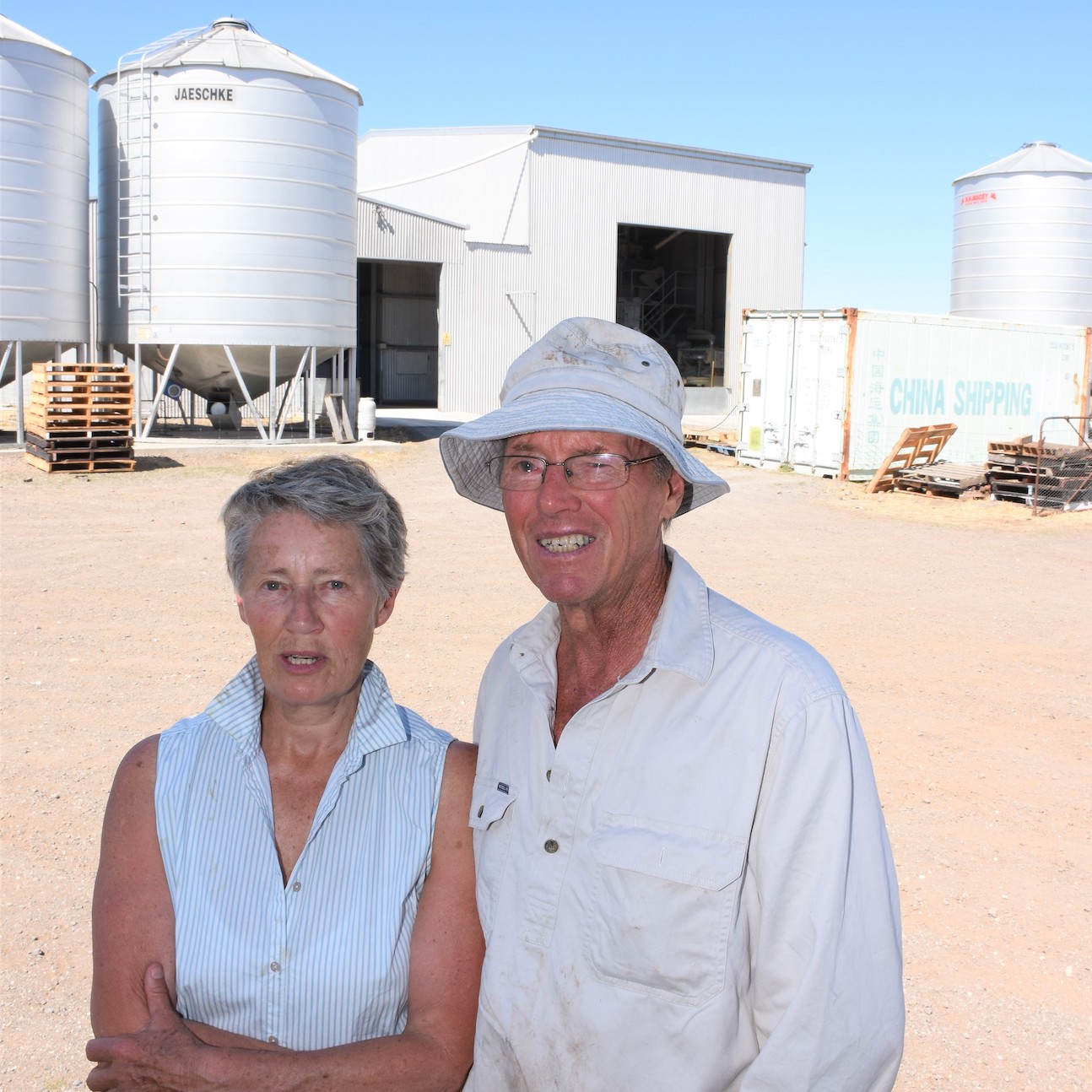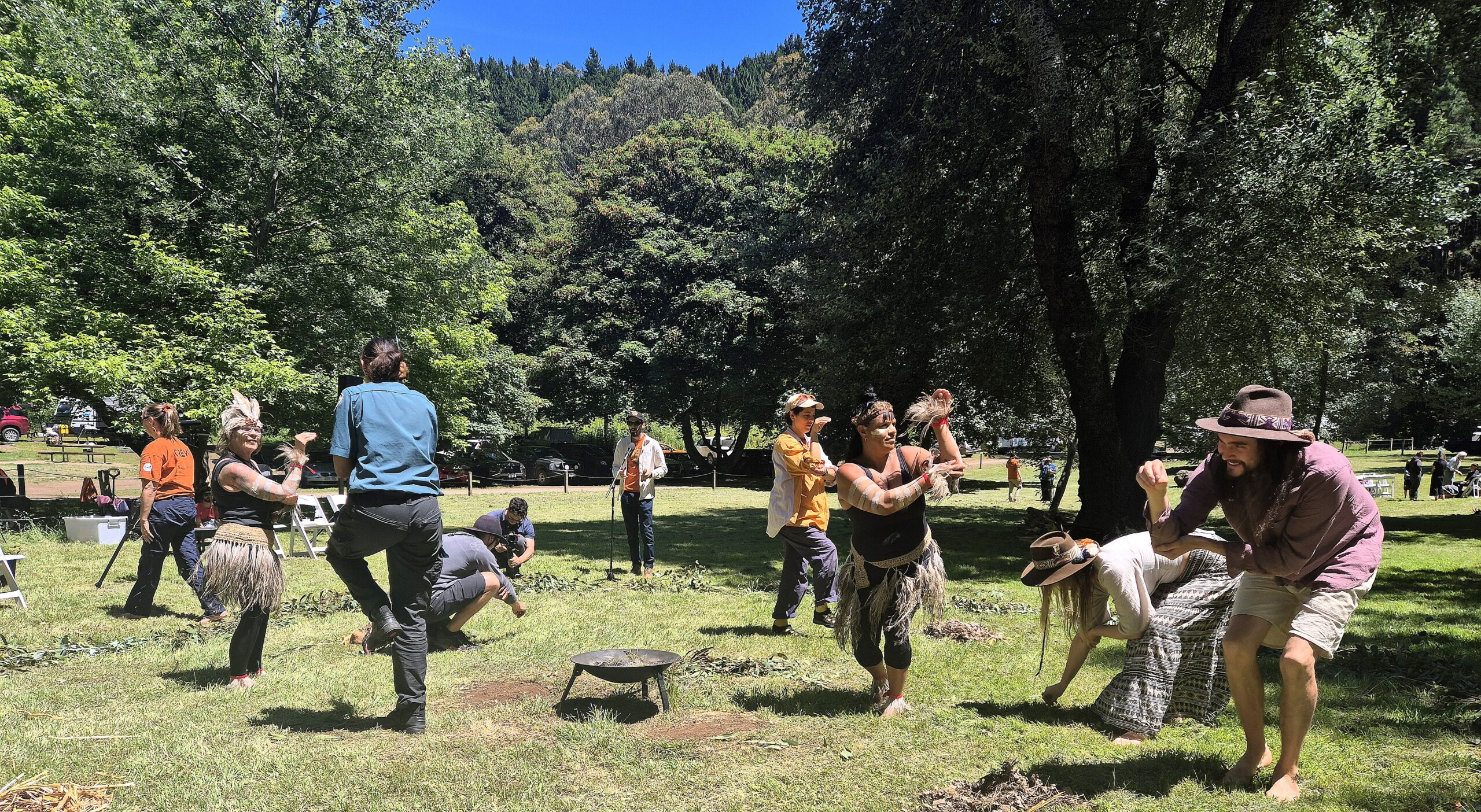January 2nd, 2022Powlett Hill – leading proponent of biodynamic farming
Deep gullies cut through the ground, and the land is studded with rocks and boulders, making access all the more difficult. When seasonal green covers the land, it softens the harsh contours, but you still marvel at the tenacity of the early farmers who settled – and stayed – here.
It seems a little unreal, then, to be out here, about 35 kilometres north-west of Daylesford, at Campbelltown, on our way to a flour mill. And not just any flour mill; we’re on our way to visit a leading proponent of Australian biodynamic farming, Powlett Hill.
When we arrive at the mill we’re greeted by Andrew Fawcett, whose family has been farming land around these parts for more than 150 years. Inside the dusky, surprisingly cool shed, the flour mill is in operation.
Andrew takes us to where grain is being slowly fed into the millstone grinder. The pulverised material is fed by a conveyor belt into a sifter box, where the chaff is separated out along with the various consistencies of flour.
Andrew sticks his hand under one of the spouts protruding from the sifter and collects a sample of flour. He gently taps the powder into his palm, showing us how fluffy it is, free from unwanted materials or clumps.
“You know where the saying ‘nose to the grindstone’ comes from?” he asks. “Because the only way you can tell if the flour is right is by putting your nose in it, smelling it, feeling it,” he says, gently rubbing flour between work-hardened thumb and forefinger.
And yes, from the aroma of this freshly ground flour, you can easily imagine the loaf of bread it will eventually become.
Wheat, rye and spelt grains are stone-ground in the mill, and Andrew is equally taken by the artistry that goes into the making of milling stones, as by the quality of the product they help create.
Andrew, his wife Jenny and their son Ben farm about 1200 hectares here in Central Victoria, where they raise livestock, and grow spelt, a grain prized for its low gluten content, and wheat, although the Central Victorian climate is challenging in this regard, so the Fawcetts buy much of their wheat and rye from other biodynamic farmers around the region.
They also sell eggs from their more than 2000 free-range chooks, which are raised according to strict biodynamic principles, and part of their diet includes whole wheat and bran from the flour mill.
Fresh is as important when buying flour as it is when choosing a cabbage or a bunch of asparagus. As Jenny explains, flour, like pretty much all fresh foods, begins to lose nutritional value as soon as it is processed. Powlett Hill sells flour to several bakers and pasta makers in Victoria and New South Wales, including the Zeally Bay bakery in Torquay and the sacks of flour don’t hang around the mill for long.
While the pandemic disruptions of the last couple of months have affected many producers, the Powletts’ operation has seen only minor changes. “It has been a bit tricky,” says Andrew. “We had to actually stop people randomly coming up from Melbourne to pick up from the farmgate but we have been supplying the normal amount of product to our business regulars. And our main outlet, the Melbourne-based Biodynamic Marketing Company, are actually having trouble keeping up supply. There has been an increase in demand for flour due to people being at home doing more cooking and baking.”
When it comes to biodynamics, Andrew is a potent proselytiser. Around 2000 the family decided there had to be a better way to farm. Andrew’s great-grandfather Joseph Powlett came to the region from Britain and found success as a butcher. When gold fever swept through the country, Joseph stayed put and made his way by feeding the miners, as a grazier and farmer, putting his money into land and livestock.
The Powlett holdings changed over the years, as these things happen with time; parcels of land were added and sold, although Andrew says son Ben has recently bought back some of Joseph’s original property.
Andrew explains how they’d been using conventional farming methods, including chemical sprays and fertilisers, for decades – Ben, who runs much of the business today, is the fifth generation of Powletts to work this land – and they saw a noticeable degradation in the quality of the soil and the crops it produced.
Following the teaching of Alex Podolinsky, one of the key developers of biodynamic agriculture in Australia, the Powletts transformed their practices. Briefly, biodynamics is an advanced form of organic farming that involves soil preparation and treatment techniques that have been shown to produce more friable, fertile soils, with excellent water retention, and healthier plants and animals.
It’s a big commitment to doing things differently, but it appears to have paid off for the Powletts. They don’t see biodynamics as a marketing point of difference. Rather, they regard it as a better way to farm, and live.
Words: Jeff Glorfeld & Tony Sawrey | Image: Kyle Barnes










